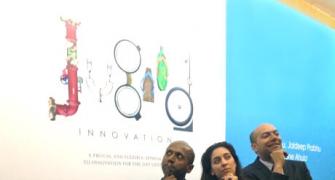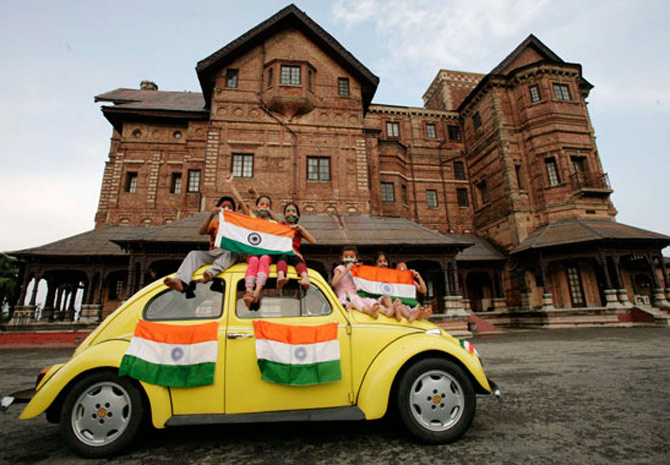The top-notch faculty at Crotonville, including Noel Tichy, Ram Charan, Vijay Govindarajan, along with GE's top leaders Jack Welch, Gary Reiner, Bill Conaty, Jeffrey Immelt and Susan Peters, together delivered sought-after programmes on leadership to generations of early-stage leaders, mid-tier and senior managers from all over the world, recounts Indrajit Gupta.

A couple of weeks ago, when GE announced it was selling off Crotonville, its iconic centre for leadership training and learning, it sparked off an interesting debate about the future of leadership development.
At its peak, especially during the Jack Welch era, Crotonville was accorded a pre-eminent status for churning out a steady stream of highly capable, global leaders who not only helmed GE's multiple businesses but later were among the most sought-after CEO picks for US corporations.
The top-notch faculty at Crotonville, including Noel Tichy, Ram Charan, Vijay Govindarajan, to name just a few, along with GE's top leaders such as Welch, Gary Reiner, Bill Conaty, Jeffrey Immelt and Susan Peters, together delivered highly curated and sought-after custom programmes on leadership to generations of early-stage leaders, mid-tier and senior managers from all over the world.
For any high-performing GE manager, it was a privilege to not just be invited to attend a leadership programme at Crotonville, but also an opportunity to engage with top business and thought leaders, both formally in the classroom and informally over dinner.
It allowed them to switch off from the day-to-day running of the business to reflect on the future, and present to senior leaders, often leading to handpicked future roles.
Most of all, Crotonville represented a huge commitment from GE's top leadership that systematic leadership development, talent management and career development made unquestioned business sense.
After all, the principle was that leaders helped build culture and culture was in turn shaped by leaders willing to pay it forward.
To be sure, in November 2021, ever since GE decided to carve up its three global businesses -- aviation, healthcare and energy -- the writing on the wall was already apparent for Crotonville.
As its first outsider to be made CEO, Larry Culp may have viewed the economics of running and maintaining an expensive 60-acre campus in upstate New York with substantial overheads as a needless expense, especially since he would not have had the emotional linkages to GE's past heritage and legacy.
However, its demise does raise several larger questions about how modern day global corporations may be run, how future leaders are likely to be groomed for global careers, and even how corporate cultures could be shaped.
The biggest among them is the short-termism that has gripped corporate America and its obsession with shareholder value creation. That virus has, in turn, percolated down to markets around the world, including India.
Crotonville inspired Four Acres at Unilever UK and Singapore and Gulita at HLL, Tata's management training centre in Pune, the A V Birla group's Gyanodaya, and many others, including SBI, Infosys, L&T, and Bharat Petroleum, to establish their own versions of corporate universities.
The fact is that a growing number of CEOs view leadership development as an expense that needs to be curbed and are unwilling to underwrite what is clearly a high gestation project.
At one level, there is a reason to pause. Corporate executive tenures are shortening, corporate longevity itself is dropping alarmingly, and there has been a huge expansion in the leadership development 'industry', with universities, business schools and management consulting firms stepping up to the plate.
With the growth of emerging markets, the need for a large physical space in the US or Europe has become somewhat harder to justify.
Yet there are two different points of view that merit evaluation.
One, while the US corporate world has been swept up by this wave of transaction-driven culture, there are those that believe that Asian companies would do well to instead preserve their relationship-based cultures and invest in building leaders for tomorrow.
The fact that there is robust demand for GE and Unilever HR leaders across India and China is a signal. Besides, a large corporate university with the pomp and show of a Crotonville or Four Acres may not be necessary.
But GE could have considered turning Crotonville into a part revenue-generation engine, based on the utilisation the leaders were willing to commit.
Two, accepting high leadership churn and over-relying on hiring talent laterally can sometimes become a self-fulfilling prophecy.
The more you move away from a structured approach to designing careers, the weaker the glue that binds and sustains corporate cultures becomes.
Many companies routinely nominate some of their top leaders to high badge value programmes at Harvard, Wharton and Stanford.
However, while it is seen as a huge perk, there is a question mark about whether they make any real difference to the organisation when the executive returns.
As at Crotonville, the concept of 'in TAC teams' working on specific challenges, developing a shared understanding of how to solve them, is a powerful way to drive relevance, context and meaning.
More often than not, these action learning projects, conducted in-house, help deliver business results that not only cover their costs but also yield significant returns.
Most firms struggle to find the right balance between experiential or applied learning and conceptual learning.
Above all, it is about top leaders demonstrating commitment to the process of leadership development.
At Gulita, that commitment was visible from successive generations of chairmen, say HUL managers, who went through the paces in the eighties and nineties. By the next decade, however, that commitment had begun to wane.
In the future, when major corporations think about investing in culture and values, it remains to be seen how much emphasis they will place on leadership development in general and on building their own in-house leadership academies.
Indrajit Gupta is co-founder at Founding Fuel.
Feature Presentation: Ashish Narsale/Rediff.com










